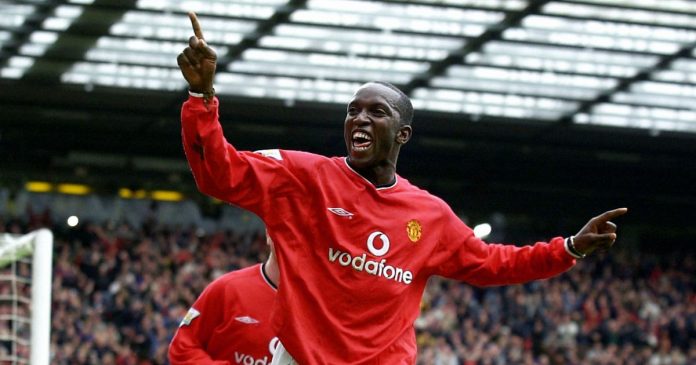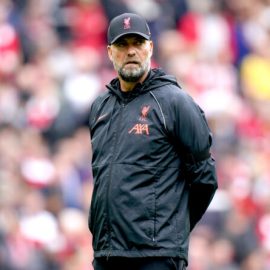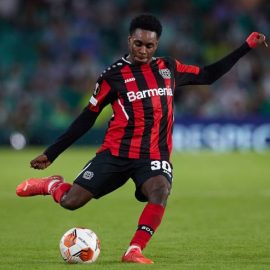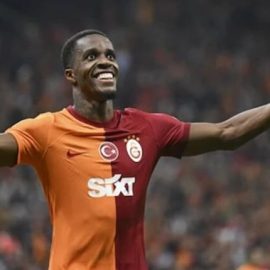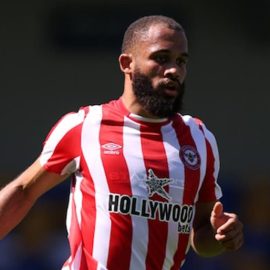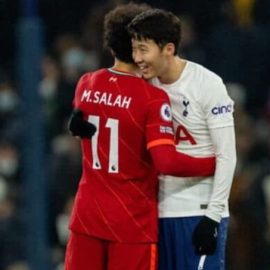As Manchester United parade their 19th league title, the rain-soaked celebrations are an appropriate metaphor for the 2010/2011 season.
On one hand, they’ve won their 19th league title (12th under Ferguson), a title United fans wanted more than the Champions League for the last two years, and a title they’ve richly deserved. To put this title win into perspective, Chelsea won the league title last season with just 1 point – one goal conceded or one chance gone begging that that turned a win into a draw and pushed United to second place. In stark contrast, United won this year by 9 points – a clear margin of 3 wins more than any other team.
On the other hand, Saturday’s loss to Barcelona a rude slap, a bucket of cold water thrown over this season’s celebrations, and a performance that left United fans (and players) feeling hollow and numb. The pain of United’s second defeat in three years to the same team, in the same manner, was only alleviated by the brilliance of the three goals created by Barcelona. After all, if you let them play, they will tear you apart. Again.
But that is in the past. Barcelona have their 4th Champions League trophy (their second under Guardiola), their third consecutive league title and Manchester United have their much-sought-after 19th league title. All eyes must focus on the future, on the next two months as United brace themselves for a squad revamp, a summer tour to the US (where they play…Barcelona) and another season with Ferguson at the helm.
I’ll leave it to ROM and Zonal Marking to analyse the final, let’s look at United’s future. In a two-part feature, you’ll read about how how Sir Alex Ferguson influences the club (below), and later on, what United need to do in this year’s summer transfer window.
Ferguson’s Manchester United
It’s always been the club over any single player, and by that extension, the manager over any single player as well. You don’t argue with a man who has lasted 25 years at one of the best football clubs in the world and won an astounding 12 league titles in the process. He has more trophies than several ‘legendary’ managers combined. If you ask me who’s knocked Liverpool off their perch, it is Sir Alex Ferguson. He has moulded the club in his own personality over the last two decades and the consistency, never-say-die attitude and a relentless desire to win has been evident in the club throughout the years (see a previous article on Ferguson’s impact on Manchester United’s playing style).
But you also need to acknowledge the good with the bad. And as much you herald Ferguson’s man-management skills and his brilliant football brain, you also have to question some of his policies and tactics.
Team v Individuals
An obsession with control over his team’s fortunes means that Ferguson will always prioritise the team over a single individual. This has manifested itself in several ‘conflicts’ with star players at the club (the latest being his decision to marginalise Berbatov), but perhaps more importantly it is his focus on developing players for the team as opposed to helping them fulfill their natural talents.
In the last 10 years Ferguson has built his teams around three individuals, forcing everyone else to adapt to the system to such an extent that arguably very talented footballers who would have been good for United given more playing time at a young age have been somewhat frittered away.
When Ferguson built his team around Ruud van Nistelrooy, it was Diego Forlan, given a bit-part role where he needed consistency, endure a torrid time at Old Trafford. When Ferguson built his team around Cristiano Ronaldo, not only was Ruud jettisoned but the likes of Nani and Anderson, brought the season after United won their first league title in four years, got precious little playing time on the pitch as Ferguson time and time again returned to experience moulded to his team’s values instead of allowing youth the time to develop. It was as if you could only succeed at United if you sacrificed yourself for the team – character has always been ahead of footballing ability for Ferguson.
And now, as he builds (and rebuilds) his side around Wayne Rooney, there’s another crop of players young and old who will be marginalised. We’ve spoken of Dimitar Berbatov above, but you can put Michael Carrick in the same category. Carrick, a player who cannot play alongside Scholes (because Scholes is then the director and Carrick’s main strength – his dual ability to pass and intercept passes – is wasted) and yet is often asked to play second fiddle to the fading master. Carrick, a player who won United their first of four league titles in five years, just like Berbatov has been crucial for this year’s title.
And then there is the case of Fabio and Rafael, partially delayed by injury, and then by the likes of O’Shea and Patrice Evra ahead of them, and now while they are sufficiently talented to play for United, they haven’t gained the experience they should have in their years at the club, and will take another year or so to develop into safe first-team choices.
The most damaging outcome of Ferguson’s selection process has been the stunted progress of Anderson, and to some extent, Nani as well. While Nani has developed well he, like Berbatov, continues to be marginalised by players who are supposedly better at playing ‘for the team’. It’s a valid argument but it also begs the question – why sign Nani if he’s not going to be a regular starter at the club? Why not give the player sufficient experience – wherever that maybe – to develop to his potential if you’ve spent money on signing him?
Anderson though is a different story – several years at the club and his lack of positional sense – first exposed in a Champions League away game against Roma – meant that he rarely got a chance ahead of other players, and then injuries played their part as well. He’s now shown that he can score goals too, but the kid is frustratingly talented and yet not given the requisite match time at the right age and stage of his development to improve his mental aspect of the game.
Now this isn’t a whinge against Ferguson – United have, after all, just won their 4th league title in 5 years (after winning it twice in the preceding 5 years), played in 3 Champions League finals in 4 years and are inarguably the best English club of the last two decades. And this success has been built on attacking, aggressive football, focusing on clinically dismantling the opposition.
But there is a human cost of this success too, and it manifests itself in the unfulfilled potential of many of the players that passed through United in the last decade as Ferguson increasingly turned to experience and mental strength over potential talent and ability.
Learning From Tactical Mistakes
Calling Ferguson a non-tactical manager is a deeply flawed claim. It ignores the fact that this manager has, over the last decade, lost to and then adapted to beat his closest rivals – this includes Arsenal, Chelsea, Liverpool and even Manchester City. But there is also the undeniable fact that Manchester United lost twice to Barcelona using the same tactics – tactics that United are not built to execute to perfection, tactics that, if a single mistake is made, can be ruthlessly exploited by an opposition as skilled as Barcelona.
Where United needed to press, they stood off. Where United needed to stifle Barcelona’s central spine of Valdes, Pique, Busquets and Messi, they gave them space to play their game. Where United needed to take their limited chances, they fluffed them.
Effectively, United lost the battle not in Rome or London but in Manchester, when they trained to play in a way not suited to toppling the opposition. This was a case where United did not adapt, as they have been so good at doing over the last two decades. And it brings home a glaring statistic – where United have been majestic in the league (12 league titles in less than 20 years), they have been strangely unequipped to compete in Europe.
After 2006, Ferguson made a concerted change to United’s tactical approach and that has brought the club consistent success and progress to the final stages, and yes, United have been unlucky to face the best team in world football twice, but you still feel that this team would have learned from Jose Mourinho and Arsene Wenger, and their own performances of 07/08 and 08/09, and tackled Barcelona differently. Especially since they were more of a ‘team’ this season than in recent years.
But they didn’t, and it just might be that Ferguson, while supremely capable of masterminding sustained domination of league competitions and two-legged knock out ties, still needs help when it comes to one-off tactical battles where the team needs to be able to change gears and approaches quickly. He is the king of consistency and soaking up pressure over several seasons, pressure that has seriously affected the health of a young manager like Guardiola. However, in a 90 minutes tactical battle with little prior exposure and no second chances, Ferguson can be bested (and has been several times over his career).
Quite a few fans have spoken about bringing in someone like Carlos Queiroz, but whoever comes in must be able to work with the players on tactics long before they get to the Champions League final. It needs to be someone new, someone with fresh ideas and a modern, fanatical, obsessive approach to winning matches. Maybe the next Villas Boas or the next Guardiola.
Whoever it is, he will be as important to the team as the players United must sign this summer to challenge Barcelona again next season. And as Sir Alex Ferguson plots another title winning season, he knows more than anyone else that he must adapt again to keep Manchester United at the top of the footballing ladder.
Part Two: What Manchester United Must Do To Knock Barcelona Off Their Perch
Add Sportslens to your Google News Feed!
